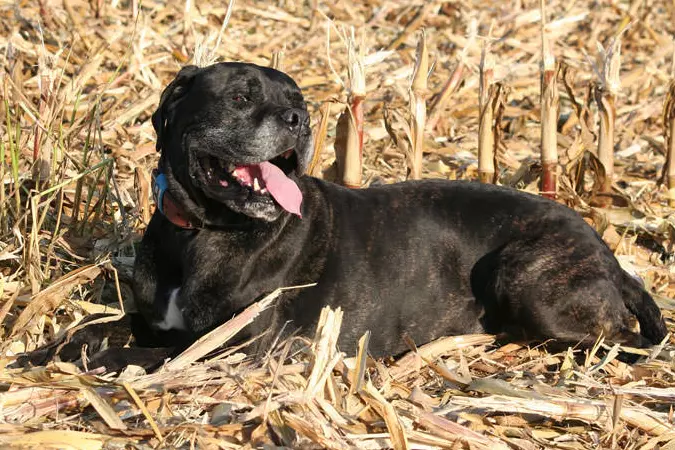Are Huskies Hypoallergenic
Table of Contents
Many families like to adopt dogs because they are lovely and loyal companions. Each breed has unique physical, emotional, and health traits.
One main concern when buying a dog is if it is a hypoallergenic breed or not?. Because many persons suffer from allergies, one of them is animal fur. For this reason, some families cannot own a dog.
In most situations, Huskies are not the ideal choice for individuals with dog allergies, no matter what meaning you give to the term “hypoallergenic.” Because the notion of a hypoallergenic dog is multifaceted, the solution to this problem is also contrived.
There is no breed as a perfectly hypoallergenic dog. All dogs create proteins and dander that can trigger allergies in certain people. Some canines, though, appear to generate more than others.
Others appear to disperse it more widely, possibly causing greater allergic responses. Huskies are frequently thought to fall under this group. Let’s discuss some common causes of pet allergies and the role of dog breeds in spreading that allergy.
What is an Allergy?
An allergy is an immunological response when the body’s immune system overreacts to a foreign substance termed an allergen. Allergens are harmless themselves; it is our body’s overreaction to them which creates severe symptoms.
How do Allergies develop?
Our immune system may produce antibodies at any age that are designed to detect and respond to a specific allergen, even though we have been sensitive to it our entire lives.
Sensitization is the term used when this happens. The immune system identifies the allergen next time, and the individual is exposed to it and reacts, resulting in an allergic response with accompanying symptoms.
Allergies may affect anyone at any moment, but some families are more sensitive than others. Individuals do not transmit an allergy to a specific allergen, but having allergies in the family increases the overall risk of acquiring allergies.
How frequent are dog allergies?
According to estimates, 30 to 40% of the world’s population suffers from one or more allergic disorders, and the prevalence of allergic disease is increasing globally. Allergies are the fifth largest cause of chronic disease in Americans of all ages, and asthma (frequently induced by allergies) is the third most prevalent chronic disease among children under eighteen.
Asthma and Allergy Foundation of United States describe that “allergies to dogs are quite prevalent, impacting millions of Americans. Cat and dog allergies affect 15 to 30 percent of persons with allergies, with cat allergies being twice as frequent as dog allergies.”

What are the common signs and symptoms of a dog allergy?
Allergies to pets are similar to other allergies. If you have this issue, getting a Husky may not be the best choice. An allergic response can cause many symptoms. The most frequent is trouble breathing.
A typical myth about pet allergies is that aches and pains and fever are typical components of the allergic response. That isn’t correct. Pet allergies generally produce symptoms in the nose, eyes, skin, and respiratory system (lungs and throat).
These factors may contribute to a worse quality of life, such as trouble sleeping and a lack of energy. Nose and eye allergy symptoms include:
- Sneezing
- Runny or stuffy nose
- Redness
- itchy or watery eyes
- Itchy nose and throat
Skin symptoms include:
- Dry & itchy skin
- Rashes
- hives
Those with allergic bronchitis or asthma may also experience the following respiratory symptoms:
- Cough
- Wheezing (whistling sound) when breathing
- Chest tightness
- Shortness of breath
In general, the symptoms will increase when a person is exposed to more allergens or when multiple distinct kinds are present. As a result, decreasing allergen exposure can help to lessen the intensity of symptoms.
What is meant by the term hypoallergenic?
According to the Greeks, hypo means “below.” It has synonyms such as fewer and less.
A hypoallergenic dog is less likely to produce an allergic reaction. It does not signify that the dog is completely allergy-free. Many people believe allergy patients are allergic to the dog’s fur, where the problem arises. This isn’t the case at all.
Are huskies hypoallergenic dog breeds?
No, they are not a hypoallergenic dog breed, and if you have a pet allergy, a husky is likely to trigger it. For pet allergy sufferers, it’s the tiny dead skin cells known as dander that cause the most trouble.
Allergy sufferers should opt for breeds with short, non-shedding coats. This is not a Siberian husky! Because dandruff and dead hairs stay in the short-haired dog’s coat brushed out.
Huskies, on the other hand, frequently shed, so your floors, sofa, carpets, clothing, and even the air in your home likely contain dander increasing allergic reaction risk.
How to diagnose I have a dog allergy?
A skin or blood test can identify allergen–specific IgE (Immunoglobulin E) to determine if you have dog allergies. Even if you’re sure you’re allergic, testing is always recommended. Some people who think they have dog allergies don’t. They’re allergic to pollen or mold that the dog brings in on its coat.
Allergy testing can assist but are not always accurate. So if you own a dog, your doctor may advise you to live without it for a bit. It may take some time apart to obtain a solid understanding of your symptoms. It typically takes months for the dander level to eliminate in the house to return the allergy-free dog home.
How you can prevent a husky to spread Allergy reactions
- It is recommended not to buy or adopt a dog if you’re aware you’re allergic. You can avoid giving up your beloved pet by taking basic precautions around the house and contemplating medication if you already have one. Consider a breed with milder symptoms if you don’t already own one.
- Minimize allergen contact to decrease symptoms. You can also keep your dog out of your bedroom, bed, and other personal areas. Keeping your dog away from these areas will help reduce dander levels.
- The couch is a great place for dander to collect, which can cause allergic reactions. Avoid putting your dog’s bedding in the same room as your allergic family member’s. Disinfect all washable things and toys for your dog to prevent dander buildup.
- Keep your dog outside of your home for a few hours each day if your symptoms are severe. Dogs, unlike cats, are social animals who do not do well when apart from their family. Don’t forget to give them shelter, drink, and protection from the elements.
- It is possible to accomplish a comparable result without keeping your pet outside by quarantining your dog when an allergic family member uses public spaces.
- Removing allergens from the body by changing clothes or taking a shower after interaction with your dog can help to prevent allergic reactions.
- Bath and brush pets at least once a week. If you’re worried about how often you should bathe your dog, it’s recommended that you only bathe them when necessary.
- Dust and clean frequently to keep dander levels down in the house. The easiest way to allergen-proof your home is to wash your bedding, comforters, and sheets in hot water once a week. Included in this are drapes, curtains, and furniture that should be cleaned regularly. In addition to washing the carpet, keep plush animals, sofa blankets, and cushions clean.
- A vacuum cleaner with a HEPA filter4 or a secondary filter4 of good quality is recommended for optimal results. Also, vacuuming agitates surfaces and momentarily fills the air with allergens, including dander, which is best done when the allergy sufferer is not there.
- Use air filters, either portable or whole-home. The best air filters available are HEPA-standard ones. These filters are more expensive than ordinary vacuum cleaners but may be more successful at removing allergens. With a portable machine, focus on the regions where the allergy sufferer spends the most time. To clean the air well before you get up or go home, set your full house filter.
- If you haven’t bought a dog yet and know you’re allergic to dogs, do your homework first. Before you adopt or buy a new dog, consider house-sitting the type of breed you’re considering. In this method, you may ensure a long-term relationship with your new pet friend. Except for youngsters who may overcome their allergies, you may be allergic to more than just dogs and dander. Dust, pesticides, pollen, and tobacco smoke are examples. Prepare for key decisions by taking tests.
- You can discuss several possibilities with your doctor if you seek medical treatment. It works by progressively normalizing your immune system to dander by injecting allergy-causing substances under your skin, which can reduce symptoms but not eliminate them. They are normally given once a week for a few weeks or months, then once a month, depending on the severity of the disease.
- Steroids and antihistamine sprays or pills are other therapy possibilities. Discuss treatment options with your GP or allergist.
- While there are no completely allergy-free breeds, some are considered more allergy-friendly than others because the nature of their coat or fur permits them to shed less dander and thus release fewer symptom-inducing allergens.
- Keep in mind that you can live with a dog even if you have a dog allergy if you have a plan for cleaning and managing allergens. Choosing a suitable breed can also help to prevent allergies.

Frequently Asked Questions
1. If I am allergic, can I still have a pet?
There are numerous approaches for controlling and decreasing allergies, including limiting allergen exposure or treating the symptoms. As a result, the majority of people can keep their dogs while managing their allergies.
2. How various dog breeds are rated for allergies?
There’s no way to ensure a breed won’t produce an allergic reaction. By spending time with the dog before buying or adopting, you may be able to evaluate your level of certainty. Also, choose a popular breed with single-layered fur to avoid allergies.
3. Can my pet allergy be completely stopped?
I’m not a doctor; therefore, I’m not completely sure! However, allergies will almost always be present, and this is usually related to your genetic structure. Allergies can be managed with drugs or injections. It’s essential to discuss this with your doctor. I am not a qualified doc to give medical advice of any type.
4. How do I Know husky is causing allergic reactions to me?
It’s difficult to say, but simple experiments are preferable. Spend some time in a freshly cleaned room, and if you aren’t allergic, bring your husky in and play with him for 30 minutes. This is a simple test that may not be exact. Try to spot tendencies; do you constantly respond when near your husky, or is it more subtle? Remember that our surroundings also contain numerous allergies.
5. Should I buy a husky if you know you have a bad pet allergy?
A husky is not advised if you have a severe pet allergy. A husky’s long hair and continuous shedding create allergies. If you can successfully manage your allergy, it’s up to you, but remember, it’s unjust to have a dog and then get rid of it.
6. How long do pet dog allergy symptoms last?
There is no specific period during which allergies can affect a person. An allergic reaction to pet dander or saliva can persist up to 12 hours if not treated correctly with medicines or antihistamines. Most of the time, it’s simply a mild inconvenience throughout the day.
Conclusion:
I hope that information is enough for you and you now understood that huskies are not a hypoallergenic dog breed, and they are quite the opposite!
Please give me a comment below if you have pet allergies and live with a husky; I’d love to hear about it!
References
- https://digitalcommons.murraystate.edu/honorstheses/85/
- https://animalnerdz.com/are-huskies-hypoallergenic/
- https://jiminys.com/dog-allergies-symptoms-cause-and-remedies/
- https://vet.osu.edu/sites/vet.osu.edu/files/legacy/documents/pdf/education/mph-vph/allergic%20to%20your%20dog.pdf
- 1xbet официального Сайт Казино Игровыми Автоматами 1хбет - April 17, 2024
- Бездепозитные Бонусы За Регистрацию и Онлайн Казино 202 - April 9, 2024
- Yeni Deneme Bonusu Veren On Line Casino Siteler - January 31, 2024








